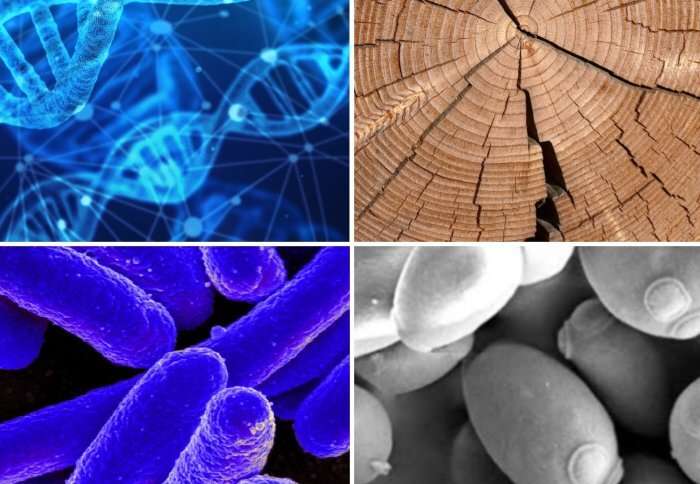Credit: Imperial College London
A new roadmap for synthetic biology could help to set research goals for improving food production, public health and the environment.
Synthetic biology is an umbrella term for the growing field of changing the fundamental design of living organisms to engineer solutions to complex problems—editing their genetic components to change their function.
To date, achievements in the field include creating engineered trees for fire resistant timber, yeast which can produce biofuel, and synthetic gut microbes that could be used to detect the early signs of disease.
In medicine, one of the greatest hopes for synthetic biology lies in genetically engineered bacteria which are able to specifically target tumors in the body.
The latest roadmap, published by the US Engineering Biology Research Consortium (EBRC), is a consensus of more than 80 scientists and engineers from a range of disciplines, representing more than 30 universities around the world—including Imperial College London—and a dozen commercial companies.
The report provides a strong case that for governments to invest in this area of research, not only to improve public health, agriculture and the environment, but also to fuel economies around the world.
Professor Paul Freemont, Head of the Section of Structural Biology in the Department of Medicine at Imperial, member of EBRC and co-author of the roadmap, said: "We believe this roadmap will firmly set the research strategy for the whole synthetic biology field for at least the next 10 years. It is a major achievement."
Meeting global challenges
Freemont is one of only a few international members of the US-based EBRC, along with Professor Richard Kitney from the Department of Bioengineering, and has been part of the technical road mapping group. The group has worked for nearly two years on a deep technical roadmap for synthetic biology.
"Over the past two decades synthetic biology has grown rapidly, using microbes like yeast and E.coli as the blueprint for engineering new and innovative solutions to complex problems—like meeting global growing demand for medicines, clean energy and sustainable food sources," he explained.
"This latest report lays out the current opportunities and technical challenges for the field, including whether or not countries make it a research priority in order to realize its full potential."
Imperial College London is a leader in the field of synthetic biology, with a wide portfolio of research spanning fuel production, pharmaceuticals, as well as flavorings and fragrances.
Earlier this year, the College led a new alliance of biofoundries—institutes which design, build and distribute the components for synthetic biology, as well as driving innovation in the field.
More information: The full roadmap is available at roadmap.ebrc.org
Provided by Imperial College London






















